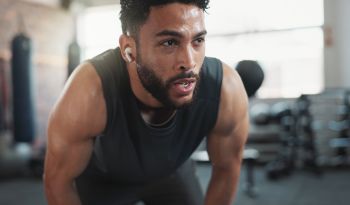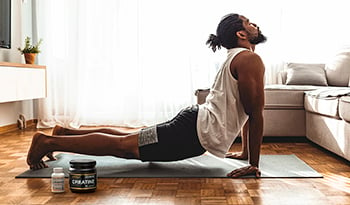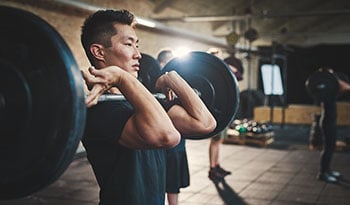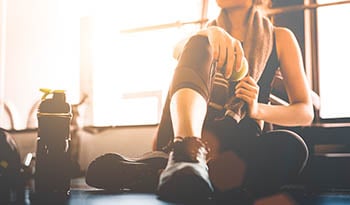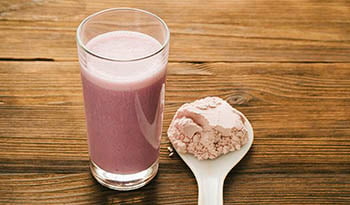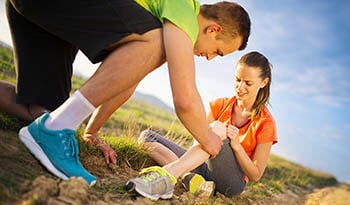I migliori integratori per il dolore muscolare e l'accelerazione del recupero
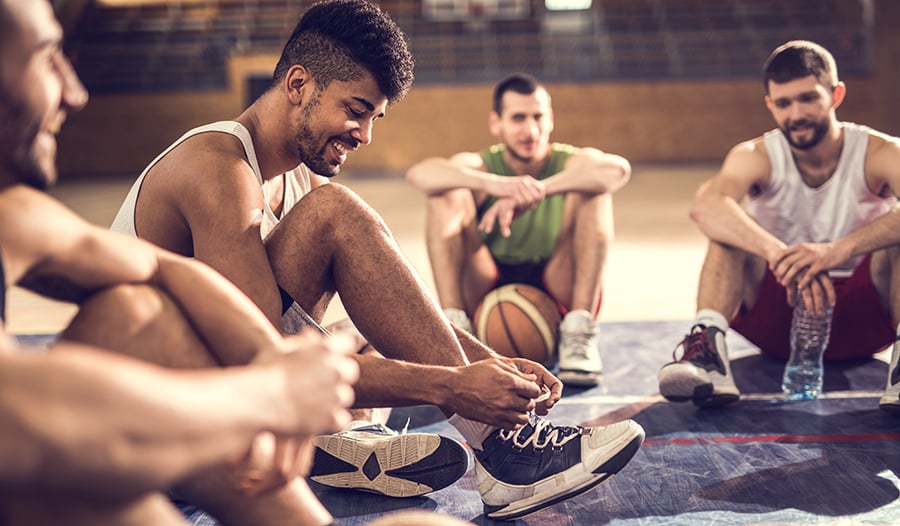
Ah, l'indolenzimento muscolare: quella familiare sensazione post-allenamento che ricorda quanto ci si è sforzati. Ma siamo onesti: quella sensazione di bruciore può anche essere una grande seccatura. Può prosciugare le energie, ostacolare le prestazioni e far sembrare anche i compiti più semplici una battaglia in salita.
Sebbene l'indolenzimento muscolare indichi che i muscoli si stanno adattando e diventando più forti, ciò non significa che si debba sorridere e sopportare il disagio. Quindi, cosa si può fare per sconfiggere l'indolenzimento post-allenamento e riprendersi più velocemente?
Sebbene sia fondamentale dare priorità al riposo, alla forma fisica corretta e a un buon raffreddamento, gli integratori possono svolgere un ruolo di supporto nel recupero. Continuate a leggere per conoscere gli integratori per alleviare l'indolenzimento muscolare.
Perché i muscoli si indolenziscono dopo l'esercizio?
Quando ci si impegna in un allenamento nuovo o intenso, i muscoli sono sottoposti a sollecitazioni meccaniche e metaboliche che possono portare a strappi microscopici nelle fibre muscolari, un fenomeno noto come indolenzimento muscolare a insorgenza ritardata (DOMS).
In risposta a queste lacerazioni, il corpo avvia un processo infiammatorio. Questo comporta il rilascio di varie sostanze, come citochine e chemochine, che contribuiscono a:
- Eliminare i detriti: Il tessuto muscolare danneggiato e i prodotti di scarto delle cellule vengono rimossi.
- Promuove la riparazione: Viene stimolata la crescita di nuove fibre muscolari e del tessuto connettivo.
- Ridurre l'infiammazione: Infine, con il progredire del processo di guarigione, la risposta infiammatoria si attenua.
Perché fa male?
Sebbene l'infiammazione sia essenziale per la guarigione, contribuisce anche al disagio associato ai DOMS. Il gonfiore e l'irritazione causati dall'infiammazione possono esercitare una pressione sulle terminazioni nervose, provocando dolore e tensione. Inoltre, l'accumulo di sottoprodotti metabolici, come l'acido lattico, può aggravare l'indolenzimento.
Fattori che influenzano la gravità dei DOMS
Diversi fattori possono influenzare la gravità dei DOMS, tra cui:
- Intensità dell'esercizio: Gli allenamenti ad alta intensità hanno maggiori probabilità di causare danni muscolari significativi e conseguente indolenzimento.
- Durata dell'esercizio: Un esercizio prolungato può aumentare il rischio di DOMS.
- Tipo di esercizio: Le contrazioni eccentriche, in cui il muscolo si allunga durante la contrazione (ad esempio, abbassando un peso durante un curl per bicipiti), sono particolarmente efficaci nell'indurre i DOMS.
- Condizionamento muscolare: Le persone che si avvicinano per la prima volta all'esercizio fisico o che sono rimaste inattive per molto tempo hanno maggiori probabilità di sperimentare i DOMS.
- Stato nutrizionale: Un'idratazione adeguata e una corretta alimentazione possono influenzare il recupero e ridurre la gravità dei DOMS.
I migliori integratori per il dolore muscolare
Ora esploriamo una guida agli integratori per l'indolenzimento muscolare, compresi gli integratori per il recupero dei DOMS:
1. Aminoacidi a catena ramificata (BCAA)
Questi aminoacidi essenziali - leucina, isoleucina e valina - sono facilmente assorbiti dai muscoli e possono contribuire alla riparazione e alla riduzione dell'indolenzimento. Le ricerche hanno dimostrato che l'integrazione di BCAA può migliorare le prestazioni dell'esercizio fisico e può contribuire a ridurre i DOMS, soprattutto durante l'esercizio fisico intenso o prolungato. In particolare, si ritiene che la leucina svolga un ruolo chiave nello stimolare la sintesi proteica muscolare. Per un'efficacia ottimale, cercare integratori con un rapporto 2:1:1 tra leucina, isoleucina e valina.
2. Acidi grassi Omega-3
Gli acidi grassi omega-3, presenti nei pesci grassi e negli integratori di olio di pesce, hanno effetti antinfiammatori che possono aiutare a contrastare l'indolenzimento e la rigidità muscolare. Diversi studi hanno dimostrato l'efficacia dell'integrazione di omega-3 nel ridurre l'indolenzimento muscolare e migliorare il recupero. Gli acidi grassi omega-3 offrono anche numerosi altri benefici per la salute, tra cui una migliore salute del cuore, della funzione cerebrale e della vista.
3. Ciliegia aspra
La ciliegia tartara contiene composti con proprietà antinfiammatorie che possono contribuire a ridurre l'indolenzimento muscolare. Inoltre, le ciliegie sono ricche di antiossidanti che contribuiscono a ridurre il danno muscolare e a promuovere un recupero muscolare più rapido, aumentando il flusso sanguigno come vasodilatatore. L'aumento del flusso sanguigno fornisce ossigeno e sostanze nutritive ai muscoli danneggiati, essenziali per il recupero. Diversi studi dimostrano che l'integrazione di ciliegie tartaruga può aiutare il recupero riducendo i dolori muscolari, diminuendo la perdita di forza, aumentando la capacità antiossidante dell'organismo e riducendo l'infiammazione.
4. Curcumina
La curcumaIl principio attivo della curcumina ha proprietà antinfiammatorie che possono contribuire a ridurre il dolore muscolare. Una revisione del 2020 ha rilevato che 150-1.500 mg di integratori di curcumina al giorno riducono l'indolenzimento muscolare percepito, abbassano i livelli di creatina chinasi (un enzima del sangue che indica il danno muscolare) e migliorano la funzione muscolare. La curcumina aiuta anche a combattere l'infiammazione post-esercizio inibendo l'effetto delle molecole pro-infiammatorie.
5. Magnesio
Il magnesio è coinvolto in diverse funzioni corporee, tra cui il rilassamento muscolare. Infatti, se non si dispone di una quantità sufficiente di magnesio, si ha una maggiore probabilità di sviluppare crampi muscolari. Le ricerche dimostrano che quasi il 50% della popolazione statunitense non assume una quantità sufficiente di magnesio nella propria dieta. Questa cifra raggiunge il 75% per le donne. Alcuni studi hanno rivelato che l'integrazione di magnesio può contribuire a ridurre i crampi muscolari e ad alleviare i DOMS.
6. ZMA (zinco, magnesio aspartato, vitamina B6)
Gli integratori di ZMA sono popolari tra gli appassionati di fitness per il loro potenziale di aumento delle prestazioni atletiche. Lo zinco e il magnesio possono aiutare a prevenire l'affaticamento e l'indolenzimento muscolare, mentre la B6 agisce direttamente con questi due nutrienti per migliorare l'energia e la qualità del sonno, riducendo così l'indolenzimento muscolare.
7. La creatina
La creatina, una sostanza presente naturalmente nelle cellule muscolari, può migliorare la forza, la potenza e il recupero muscolare, in particolare durante gli allenamenti ad alta intensità. Aumentando la disponibilità di ATP, la moneta energetica delle cellule, la creatina contribuisce a ritardare l'affaticamento e a migliorare le prestazioni generali. Alcuni studi hanno rivelato che l'integrazione di creatina può migliorare le prestazioni atletiche e contribuire a ridurre l'indolenzimento e l'affaticamento muscolare, oltre a fungere da integratore per il recupero post-allenamento. . Tuttavia, è importante notare che la creatina potrebbe non essere adatta a tutti e che è necessario consultare un medico prima di iniziare l'integrazione.
Ulteriori suggerimenti per ridurre l'indolenzimento muscolare
Anche se gli integratori possono essere utili, non dovrebbero essere la linea di difesa principale. Costruire una base solida con le giuste scelte alimentari è essenziale per aiutare il recupero dai DOMS. Ecco alcuni ulteriori consigli alimentari e di benessere su cui concentrarsi.
Proteine
Le proteine, che costituiscono i mattoni del tessuto muscolare, sono fondamentali per la riparazione e la crescita. Cercate di consumare ogni giorno 0,8-1 grammi di proteine per ogni chilo di peso corporeo. Le fonti principali sono il pollo, il pesce, le uova, i legumi e i latticini.
Carboidrati
Il rifornimento delle scorte di glicogeno dopo l'esercizio è fondamentale. Includere nella dieta carboidrati complessi come riso integrale, cereali integrali e patate dolci.
Frutta e verdura
Sono ricchi di antiossidanti che possono combattere le infiammazioni e favorire il recupero muscolare.
Idratazione
La disidratazione può aggravare il dolore muscolare. Cercate di bere acqua a sufficienza durante la giornata, soprattutto prima, durante e dopo l'esercizio fisico.
Stretching e Foam Rolling
Lo stretching prima o dopo l'allenamento può aiutare a migliorare le prestazioni atletiche, ad alleviare l'indolenzimento muscolare e a prevenire le lesioni causate dagli allenamenti. È stato dimostrato che 20 minuti di foam rolling al giorno riducono la tensione muscolare e combattono i DOMS dopo l'esercizio:
Dormire
Alcuni studi hanno dimostrato che le lesioni e gli indolenzimenti muscolari sono più probabili quando la durata del sonno diminuisce. Un sonno di qualità può aiutare a prevenire i DOMS e a migliorare il recupero dall'indolenzimento muscolare.
Come scegliere gli integratori giusti
Con così tante opzioni, la scelta degli integratori giusti può essere travolgente. Ecco alcuni suggerimenti:
- Leggere attentamente le etichette: Conoscere gli ingredienti, il dosaggio e i possibili effetti collaterali.
- Ricercare le marche: Scegliete marche affidabili con elenchi di ingredienti trasparenti e test di terze parti.
- Consultare il medico: Discutere l'uso di integratori, in particolare di eventuali condizioni preesistenti.
- Iniziare lentamente: Iniziare con un dosaggio basso e aumentare secondo le necessità.
In conclusione
L'indolenzimento muscolare è un effetto collaterale comune dell'esercizio fisico, ma non deve ostacolare i vostri obiettivi di fitness. Combinando una dieta equilibrata, un'integrazione mirata e strategie di recupero adeguate, è possibile ridurre al minimo i disturbi e accelerare il recupero.
Bibliografia:
- Chennaoui, Mounir. "In che modo il sonno aiuta il recupero dalle lesioni muscolari indotte dall'esercizio fisico?". Journal of Science and Medicine in Sport, vol. 24, n. 10, 18 maggio 2021, www.sciencedirect.com/science/article/abs/pii/S1440244021001328, https://doi.org/10.1016/j.jsams.2021.05.007.
- DiNicolantonio, James J, et al. "Carenza subclinica di magnesio: Un fattore principale di malattia cardiovascolare e una crisi di salute pubblica". Open Heart, vol. 5, n. 1, gennaio 2018, p. e000668, www.ncbi.nlm.nih.gov/pmc/articles/PMC5786912/, https://doi.org/10.1136/openhrt-2017-000668.
- Fernández-Lázaro, Diego, et al. "Modulazione del danno muscolare, dell'infiammazione e dei marcatori ossidativi indotti dall'esercizio fisico con l'integrazione di curcumina in una popolazione fisicamente attiva: A Systematic Review." Nutrients, vol. 12, n. 2, 15 febbraio 2020, pag. 501, https://doi.org/10.3390/nu12020501.
- Gonzalez, Adam M. e Eric T. Trexler. "Effetti dell'integrazione di citrullina sulle prestazioni nell'esercizio fisico nell'uomo". Journal of Strength and Conditioning Research, vol. 34, no. 5, gennaio 2020, pag. 1, https://doi.org/10.1519/jsc.0000000000003426.
- Gu, Chunlei. "RUOLO DELLE PROTEINE DEL GRANO NEL RECUPERO POST-WORKOUT." Revista Brasileira de Medicina Do Esporte, vol. 29, 2023, https://doi.org/10.1590/1517-8692202329012022_0404.
- Hills, Ronald D., et al. "Microbioma intestinale: Implicazioni profonde per la dieta e le malattie"." Nutrients, vol. 11, n. 7, 16 luglio 2019, pag. 1613, www.ncbi.nlm.nih.gov/pmc/articles/PMC6682904/, https://doi.org/10.3390/nu11071613.
- Hotfiel, Thilo, et al. "I progressi nell'indolenzimento muscolare a insorgenza ritardata (DOMS): parte I: patogenesi e diagnostica". Sportverletzung - Sportschaden, vol. 32, no. 04, dic. 2018, pp. 243-250, https://doi.org/10.1055/a-0753-1884.
- Maffulli, Nicola, et al. "Lesioni muscolari: Breve guida alla classificazione e alla gestione". Translational Medicine @ UniSa, vol. 12, 2014, pp. 14-8, www.ncbi.nlm.nih.gov/pmc/articles/PMC4592039/.
- Pearcey, Gregory E. P., et al. "Foam Rolling per l'indolenzimento muscolare a insorgenza ritardata e il recupero delle misure di prestazione dinamica." Journal of Athletic Training, vol. 50, n. 1, gennaio 2015, pp. 5-13, https://doi.org/10.4085/1062-6050-50.1.01.
- Simonetto, Marialaura, et al. "Un nuovo ruolo antinfiammatorio dei PUFA Omega-3 nella prevenzione e nel trattamento dell'aterosclerosi, del deterioramento cognitivo e della demenza vascolare". Nutrients, vol. 11, n. 10, 23 settembre 2019, www.ncbi.nlm.nih.gov/pmc/articles/PMC6835717/#:~:text=Specifically%2C%20omega%2D3%20PUFAs%20exert, https://doi.org/10.3390/nu11102279.
- Tilak, Kumar e Bs. "Uno studio sull'effetto della catena ramificata di aminoacidi sull'indolenzimento muscolare dei sollevatori di pesi dello Stato di Karnataka". ~ 1325 ~ International Journal of Physiology, vol. 4, n. 1, 2019, pp. 1325-1327, www.journalofsports.com/pdf/2019/vol4issue1/PartAC/4-1-333-260.pdf. Accesso al 25 settembre 2024.
- Winter, Katharine. "Massimizzare il recupero muscolare: Il ruolo della nutrizione post-allenamento". Rupa Health, 27 novembre 2023, www.rupahealth.com/post/maximizing-muscle-recovery-the-role-of-post-workout-nutrition.
- Zeng, Cong, et al. "L'applicazione del meccanismo DOMS e la prevenzione nell'educazione fisica e nell'allenamento." Journal of Healthcare Engineering, vol. 2022, 7 gen. 2022, pp. 1-5, https://doi.org/10.1155/2022/9654919.
ESONERO DI RESPONSABILITÀ:Questo Centro Benessere non intende fornire diagnosi...















































































 Indice
Indice



